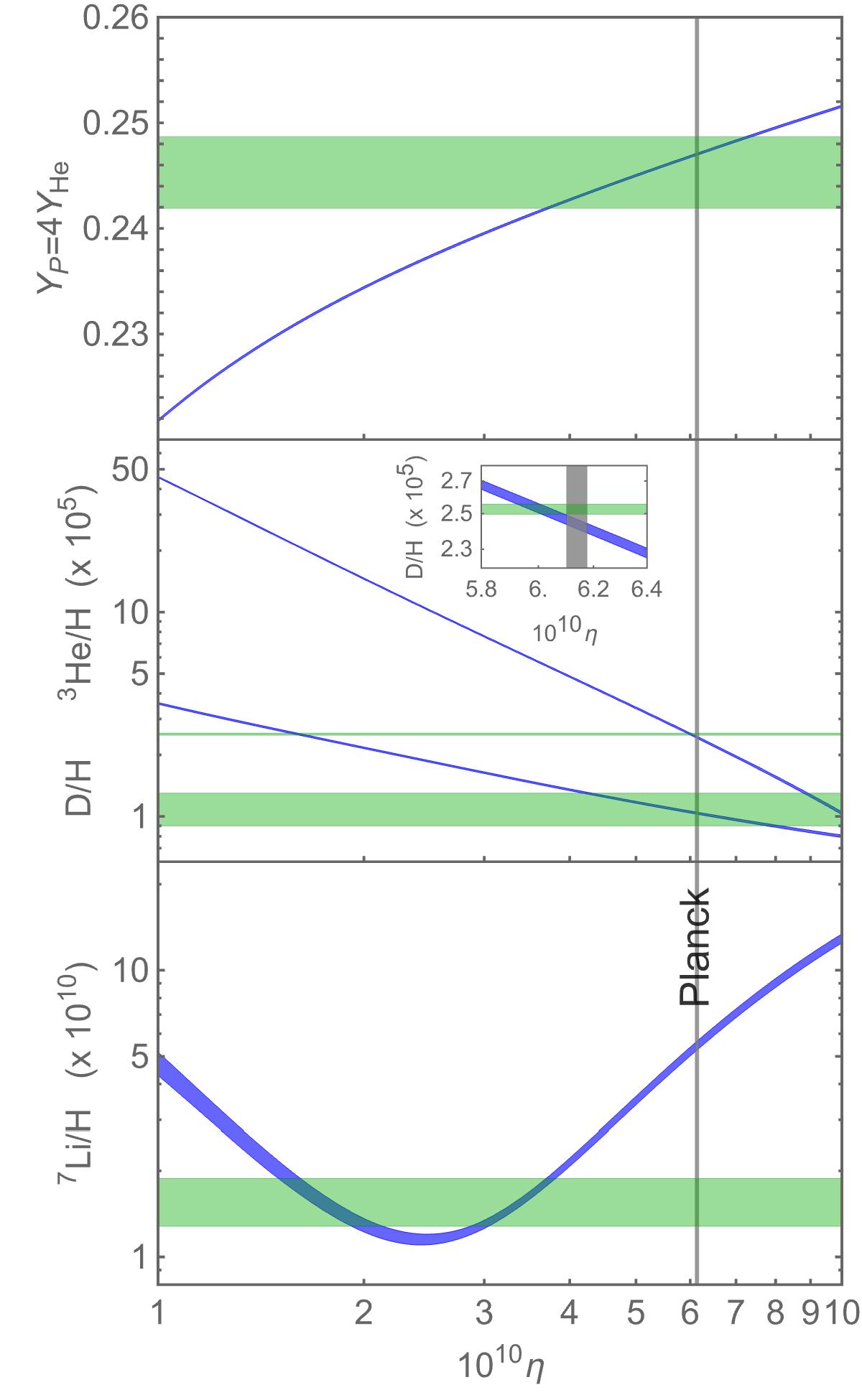PRIMAT
PRImordial MATter
General descriptionPRIMAT is a Mathematica code dedicated to the computation
of light elements abundances at the end of the Big-Bang
Nucleosynthesis (BBN). It computes the evolution of these
abundances in the first minutes after the Big-Bang so as to obtain
the frozen values when the temperature dropped below 108
degrees. It allows to explore the dependence of light elements
abundances on cosmological parameters, such as baryon density or
number of neutrino species, but also to estimate from a Monte-Carlo
method the uncertainty in these predictions due to uncertainties in nuclear reaction rates.
It is tested for Mathematica 13.x.y and 14.x.y but used to work on earlier versions.
Documentation The details of the method used to solve numerically for the
thermodynamics, cosmology and nuclear reactions in the early
universe are available in an Physics Reports article (04, (2018) 005 [arXiv:1801.08023]).
Please cite it along with this website if you use it in BBN related publications, using this
bibtex file. See also updates on rates described in MNRAS 502 (2021) 2474-2481 [arXiv:2011.11320].
A PDF dump of the notebook is provided in the package if you wish only
to consult the code without opening Mathematica.
The code is commented and refers to equations in the Physics Reports article.
New !
: PRIMAT can be called within python, and a folder provides brief examples.
DownloadingYou can download the latest and previous versions of
PRIMAT (see README file inside).
Previous versions
Some examples are provided in the Example folder. Three
basic examples explain how to get the final abundances,
output them in files, and draw some plots. Other more advanced examples
perform computations on a grid of parameters or MCMC
estimations of uncertainties, or both.
This can take a long time even using parallelization over several Kernels.
Hence you can also download the previously stored results of
the Results folder.
You can place this folder inside PRIMAT folder (0.3.0 version only), and when running the example notebooks, then you must skip the cell launching
long computations and you proceed with the
subsequent cells which load and analyze the results.
ResultsA table of main abundances (He-4 and Deuterium) as a
function of baryons abundance and effective number of
neutrinos, which was generated with PRIMAT, is provided but it
is also available as a direct download : PRIMAT_Yp_DH_ErrorMC_100_2024.dat
CopyLeftThe programs in this page are distributed as free software under the GNU General Public License. They are distributed in the hope that they will be useful, but WITHOUT ANY WARRANTY; without even the implied warranty of MERCHANTABILITY or FITNESS FOR A PARTICULAR PURPOSE. See the GNU GPL for more details. |


